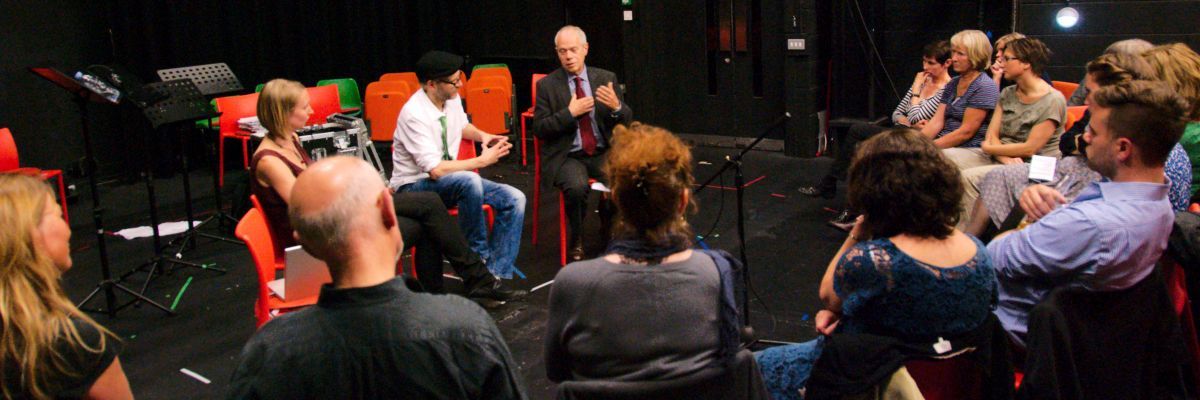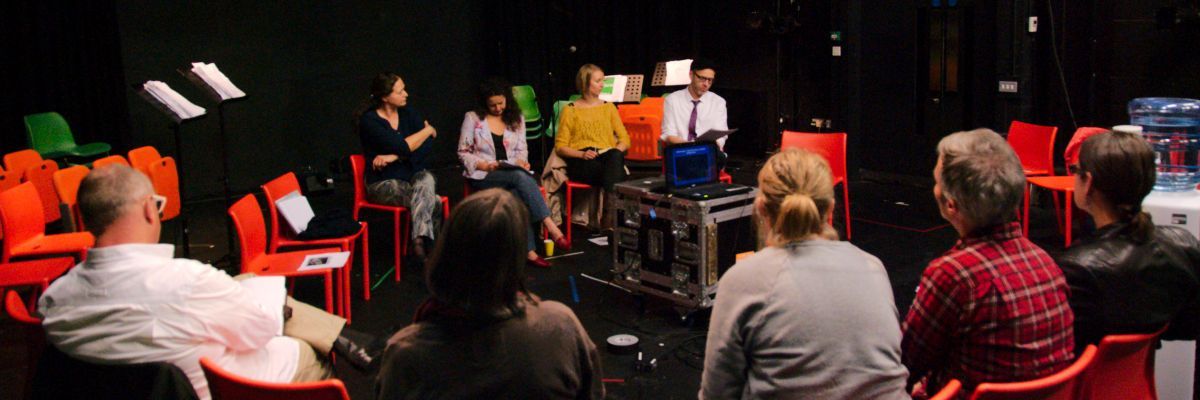
© Image courtesy of StagePhoto

© Image courtesy of StagePhoto
Ibsen Stage Company has a hosted numerous Ibsen seminars in the UK featuring leading British and European Ibsen scholars, theatre practitioners, translators, art critics and theatre producers from the UK, Italy, Sweden and Norway.
Professor Gunilla Anderman, University of Surrey
Professor Laura Caretti, University of Siena, Italy
Professor Janes Garton, University of East Anglia
Professor Frode Helland, University of Oslo, Norway
Associate Professor Anne Marie Rekdal, University of Volda, Norway
Dr. Marie Wells, University College London
Professor Laura Caretti, University of Siena, Italy
Ba Clemetsen, Nationaltheatret, Norway
Stephen Unwin, Artistic Director, Rose Theatre Kingston
Dr. Marie Wells, University College London
Paul Binding, Author, Critic and Cultural Historian
Paul Taylor, Critic, The Independent
Dr. Marie Wells, University College London
Terje J Tveit, Ibsen Stage Company
Professor Laura Caretti, University of Siena, Italy
Deborah Dawkin, Penguin Classics
Rebecca Manson Jones, Artistic Director, Just Jones &
Dr. Marie Wells, University College London
Phil Stokoe, Psychoanalyst
– in conversation with Kaja Bjørntvedt and Terje J Tveit
In 2003 Ibsen Stage Company's production of Little Eyolf is critically acclaimed by the leading Ibsen scholar Inga-Stina Ewbank in her paper Reading Ibsen’s Signs: Ambivalence on Page and Stage when the production performs at the Rosemary Branch Theatre on the London Fringe.
The company is consequently asked by the Royal Norwegian Embassy to open the UK Ibsen anniversary, Ibsen Year 2006, at the Riverside Studios with a revival of the production. The premiere is introduced by Dame Vanessa Redgrave.
“It may be that in 2003 Ibsen’s intentions in Little Eyolf can be more faithfully re-created in the theatre by non-naturalistic staging. This was forcibly brought home to me earlier this year by Dale Teater Kompnai [Ibsen Stage Company] […] Ibsen’s text was all there, in a faithful translation into English by Terje Tveit, who had also directed; but the set was bare but for a few permanent props: a suitcase out of which spilled the blank leaves of Alfred Allmers’ unwritten book on Human Responsibility; a bench on which characters confronted each other; a flagpole round which they moved, their body language suggesting at times the same despair as those sentences which have nowhere to go but a dash, at other times a glimmer of purpose and hope. The actor who played Little Eyolf was an adult, and so attracted none of the extra-textual sympathy usually given to the child actor as such. Taller than any other member of the cast, six foot and more, he spoke the child’s lines through the crutch he held up. Less important in his own right than as an object of displacement and guilt, he stayed on stage (as did the Rat Wife) throughout the three Acts, a personified conscience. And the ending left us powerfully torn between believing and not believing that Rita and Allmers had a future other than emptiness and death. Here was a creative translation which had started from a faithful reading of Ibsen’s signs and had gone on to ask how these signs could be made to speak to a contemporary audience. And by ‘speak to’ here I don‘t mean suspend disbelief, but move, alert, harrow, disturb. That is, activate what James called ‘the hard compulsion’ of Ibsen’s art.”